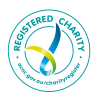Is MBSR for you?
In this course you will explore:
- Stress physiology and how to work with it
- Interrupting loops of stress reactivity in daily life
- How to use time more effectively
- Interrupting patterns of self-criticism and negative thinking
- Reflecting on challenges with greater clarity and perspective
- Developing decision-making skills
- Exploring softening towards ourselves and others
- Finding your own centre in the face of challenges
Choose What You Pay – Support Yourself & Others
Our pricing is designed to balance generosity and accessibility. Please choose the amount that best fits your situation, knowing that every contribution helps sustain our mission. If you have some financial security: that is a job, some assets (savings, shares, property) and/or superannuation income we ask you to pay your way (with a payment plan if needed).
💛 Pay It Forward – $795
I'm in a position to give more and want to help others access this experience.
💙 Standard Rate – $695
Covers the true cost of the program—thank you for your support!
💚 Community Rate – $495
I need some support, but I’m happy to contribute what I can.
💜 Accessible Rate – $250
I could use a little extra help right now—grateful for this opportunity.
No one is turned away for lack of funds. If you need further assistance, reach out to us!
What is involved?
- Weekly 2.5 hour group classes and a one day silent retreat
- Hatha yoga and body awareness training
- Theory delivered in class lectures and extra inspirations to support your practice
- One-on-one guidance and support from your teacher
- An app with guided audio and coursebook to support your learning
- Inclusion into a diverse community of practitioners and access to ongoing resources, events and the latest findings on mindfulness and neuroscience
What does mindfulness do?
- fosters a greater sense of ease, satisfaction, joy and connection in life
- interrupts patterns of stress reactivity
- cultivates lasting inner resources of restorative equilibrium
- improves sleep, overall health and immune function
- decreases the physical and psychological symptoms of stress in ways that last
- increases energy and productivity
- increases focus, concentration and the capacity for creative problem solving
Practicing Mindfulness-Based Stress Reduction (MBSR) can significantly improve chronic pain management compared to usual treatments. Research has shown that those who take part in MBSR often experience better mental health, with reductions in symptoms of anxiety, depression, and PTSD. Additionally, eight-week mindfulness programs can enhance cognitive and emotional well-being by improving attention-related capabilities (such as sustained attention and working memory) and decreasing rumination.
Make a donation to support our life-enhancing programs.


"I can't recommend the 8 week mindfulness course enough. It is fantastic to learn the techniques while being with a group, as it felt like a learning journey together. I can already see my reactions to situations have changed as a result."
Where can I do an MBSR course in Perth?
Melville |
31 Canning Highway, Melville, corner of Canning Highway and Stock Road, Melville | Register Here |
Meet our Perth Mindfulness Teacher
Karen Haddon
GCMan, AdvDipBus, GCGov, CertIVFS, CertIVBowen, CertIVCom, MBSR(MTIA)
 Karen is passionate about bringing mindfulness into the world and draws on her long experience with people in the corporate, small business and not-for-profit sectors in her MBSR teaching. She brings vitality, curiosity and caring to her classes and has the skills to enthuse and support people in their mindfulness training. Karen has practiced meditation and yoga for over 20 years and is qualified as an MBSR teacher with the Mindfulness Training Institute. She is strongly committed to helping others in finding the most relevant way for them to integrate mindfulness into their personal and professional lives and draws inspiration from the transformations she sees in each person as they begin their own mindfulness practice.
Karen is passionate about bringing mindfulness into the world and draws on her long experience with people in the corporate, small business and not-for-profit sectors in her MBSR teaching. She brings vitality, curiosity and caring to her classes and has the skills to enthuse and support people in their mindfulness training. Karen has practiced meditation and yoga for over 20 years and is qualified as an MBSR teacher with the Mindfulness Training Institute. She is strongly committed to helping others in finding the most relevant way for them to integrate mindfulness into their personal and professional lives and draws inspiration from the transformations she sees in each person as they begin their own mindfulness practice.
A strong advocate for the benefits of mindfulness for young people, Karen has qualified to teach four internationally recognised programs: MBSR for Teens, MiSP.B, Mindful Schools and MindUp.
Karen spends her days immersed in sharing the benefits and practices of mindfulness with those who attend her MBSR classes, with educators in Primary and Secondary schools, teens in both schools and in her community MBSR-T program, with workplace teams and this year has worked with three of WA’s top sports teams introducing them to mindfulness in sport.
Why learn with Openground?
Personal attention and skilled teaching
Learning mindfulness with an experienced teacher can’t be compared with using an app. We take a genuine, personal approach and our highly trained and dedicated teachers go the extra mile to help you engage with your practice in ways that can bring real transformation.

Evidence-based transformation
MBSR is an authentic, evidence-based program of mindfulness training, grounded in 39 years of research. Unlike many shorter mindfulness courses, which have no evidence of benefit, MBSR is globally recognised as the gold standard for mental and physical health in the field.

Excellent value
Our immersive, eight-week courses include 28 hours of personal mindfulness training. Many short courses only give you a taste of mindfulness, and are actually more expensive than MBSR on an hourly rate basis. Our courses offer significant value, and we can also arrange serious discounts if you need a helping hand.
-
I've tried meditation and can't do it.
Yes, we know! Everybody has this experience when they first start mindfulness practice, and most people in your class will feel the same way. Don't worry – it won't prevent you from developing more ease and peace in your life through mindfulness training.
We all need to start with the mind we have, and if that is a busy and preoccupied mind, then that’s the perfect place to begin. Initially, mindfulness practice is about becoming familiar with your own mind and body, and exploring ways to soothe, calm, and simply explore how you tick.
Step-by-step throughout the course, you’ll be offered different ways of practicing so you can bring more of this way of being to support your mental health. By exploring the science of mindfulness, you’ll also discover why so many of us have such jumpy, 'jack-rabbit' minds and learn what you need to do to cultivate a calmer and clearer mind.
-
What is an evidence-based mindfulness course?
Openground has 20 years of experience in helping people with serious mental and physical health challenges. and our programs spring from a long tradition of preventative and behavioural medicine which has been researched over decades. Much of the more recent mindfulness stuff has been watered down:
- using videos V being supported by a dedicated teacher
- just using an app, rather than a detailed exploration of your patterns and how to interrupt them
- focussing on "well-being" rather than acknowledging just how tough mental health problems can be.
-
Why is it important to practice?
Mindfulness meditation is not just a good idea – it’s a practice! As with any new skill – like learning to swim, do Pilates or play golf – just hearing or reading about mindfulness can only take you so far. Experience and practice are the two things that will lead to lasting and profound changes.
For the meditation training to make a real difference to your mental health, ask yourself if you are willing to make a commitment to undertake some formal meditation practice each day over the eight weeks of your course. This will make all the difference to your satisfaction with the course, the benefits you experience, and your life.
Training in mindfulness will equip you with a very portable set of skills that you can practice anywhere, anytime. Give it a go and let's see what happens! -
Do mindfulness apps work?
We may not like it, but real change takes time. This is why your training for stress and burnout, anxiety, depression and trauma unfolds over eight weeks plus a whole day retreat – a total of 27 hours of training, as well as your home practice.
Promises of a quick fix are always tempting. There are many apps and pre-recorded short courses about recently, that don't have the clinical evidence behind them. If you have tried these and only had minimal benefit, that makes sense.
We encourage you to do some research of your own. If you are quite stressed, or you’re facing some big challenges, you may find greater benefit in an in-depth, evidence-based program.
Change happens through practice, and evidence suggests that for clinical conditions eight weeks is an optimum time for new cognitive, emotional, neurological and behavioural changes to become embedded. Our experience is that practice develops most effectively and sustainably when there is an ongoing personal relationship with a teacher who really knows their stuff.
-
Is this course for Health Professionals?
The eight week mindfulness training can assist with your capacity for listening, empathy, compassion and genuine curiosity. It can also help you see into our own patterns that can get in the way of being truly helpful.
However these programs are not a professional training program for using mindfulness with clients. We welcome you to join the course as a participant, leave your professional hat at the door, and immerse yourself in mindfulness practice. Our courses present an opportunity to learn about mindfulness from the inside out, by engaging in the group process and learning from your fellow participants.
There are good ethical and professional reasons to develop an in-depth understanding of your own personal mindfulness practice before teaching others. A sustained mindfulness practice, including completing an MBSR course and a teacher-led silent mindfulness retreat, is a pre-requisite for training to teach -
Can I claim through Medicare?
Unfortunately, not all health professionals can be registered to offer a Medicare rebate. Although many of our teachers are among the best trained and most skilled in the country, they are not able to offer a rebate. However, we do offer discounts for people whose circumstances make it impossible to afford the full fee, and we’re happy to discuss this option with you.
-
What if I miss a class or the Day of Mindfulness?
In some locations, there are a few courses happening simultaneously, so you could arrange to attend one of the other locations for that week. If that is not possible in your area, the course book is quite detailed in terms of covering the material each week, and you will be able to keep practicing and arrange to check in with your teacher by phone or email about your process that week.
Missing the Day of Mindfulness is also sometimes inevitable. However, this day-long meditation retreat is held every quarter, so you can always attend next time.
-
Difference between MBSR and a silent retreat?
Both of these can be valuable pathways for learning mindfulness meditation. However, many people find the intensive retreat process more manageable after they have built some basic practice skills.
One of the advantages of choosing the more gradual, eight-week process is learning to integrate your practice into day-to-day life, and creating mindful habits in the way you relate to yourself, your family, work colleagues and the world. -
Is my teacher is qualified to teach mindfulness?
All Openground teachers engage in regular professional development, silent retreats, and ongoing personal practice. The University of Massachusetts Medical School Center for Mindfulness (CFM) and the Mindfulness Training Institute Australasia (MTIA) recommends a sequence for MBSR teacher training involving foundational training, initial teaching, supervision, advanced training and certification.
To ensure you are receiving the best possible guidance from a suitably experienced mindfulness teacher. You could ask your potential teacher if they:
- have their own personal meditation practice
- take regular silent retreats
- have trained in a reputable form of group-based mindfulness training (such as MBSR)?
- And, if so, what form of training did they do?
To find out more, take a look at this article from Rebecca Crane about standards and competency in teaching: https://www.researchgate.net/publication/234071305_Competence_in_Teaching_Mindfulness-Based_Courses_Concepts_Development_and_Assessment/link/0fcfd50a94ad6677f0000000/download -
Why choose MBSR over free local options?
Many people come to MBSR because they specifically want a mindfulness training that is secular and has no particular spiritual orientation or beliefs attached to the process.
In addition, most ‘free’ meditation centres depend on the generosity of people to support and sustain their work. If you want these centres to survive, you may want to offer payment for the services you receive, so these wonderful resources can continue to thrive.

Experiences
Evidence based 8 week programs
Thursday , 6 - 8:30 pm
Please select 'Register Now' to see price options. Registrations close 24 July.


